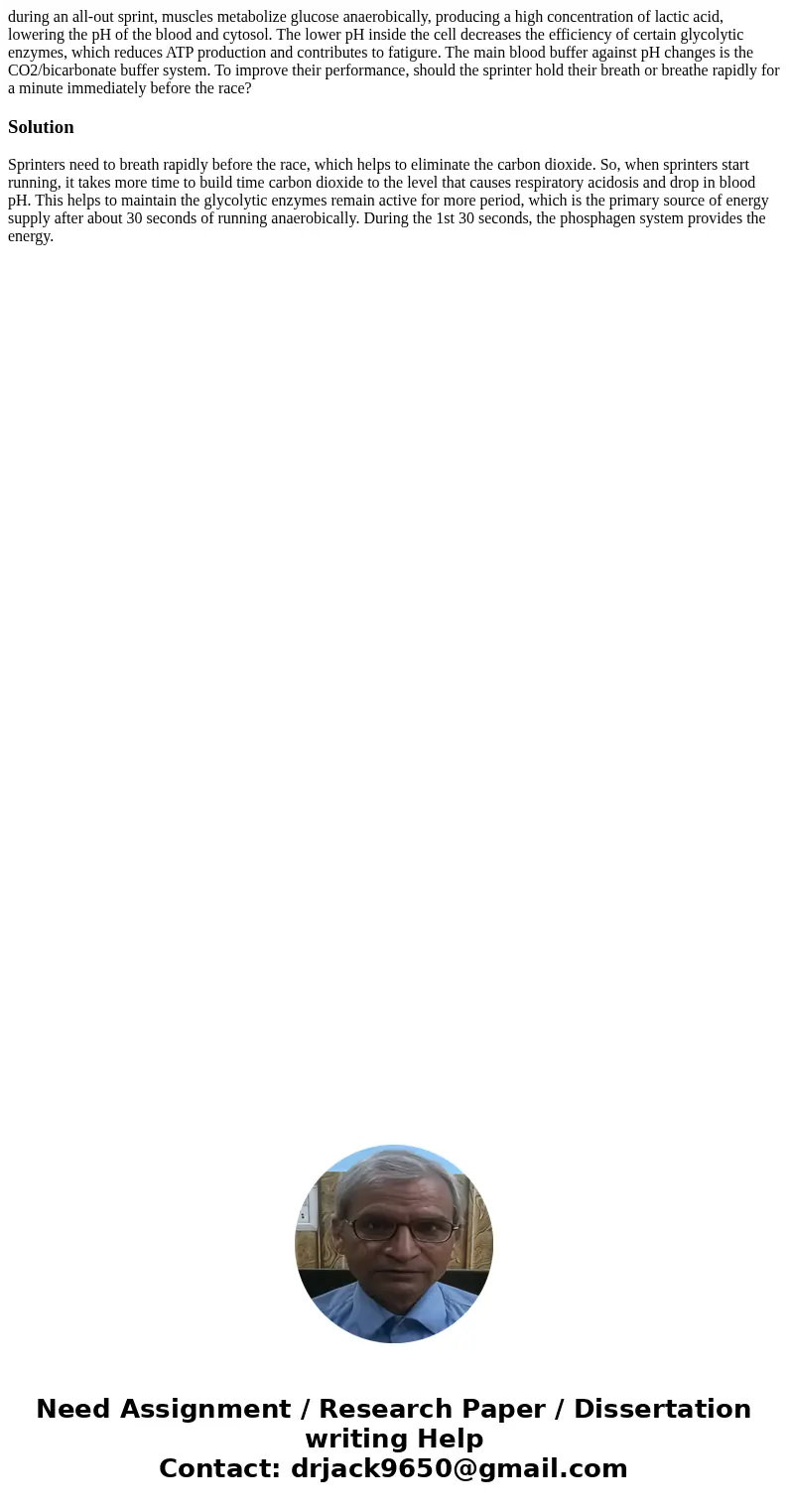during an allout sprint muscles metabolize glucose anaerobic
during an all-out sprint, muscles metabolize glucose anaerobically, producing a high concentration of lactic acid, lowering the pH of the blood and cytosol. The lower pH inside the cell decreases the efficiency of certain glycolytic enzymes, which reduces ATP production and contributes to fatigure. The main blood buffer against pH changes is the CO2/bicarbonate buffer system. To improve their performance, should the sprinter hold their breath or breathe rapidly for a minute immediately before the race?
Solution
Sprinters need to breath rapidly before the race, which helps to eliminate the carbon dioxide. So, when sprinters start running, it takes more time to build time carbon dioxide to the level that causes respiratory acidosis and drop in blood pH. This helps to maintain the glycolytic enzymes remain active for more period, which is the primary source of energy supply after about 30 seconds of running anaerobically. During the 1st 30 seconds, the phosphagen system provides the energy.

 Homework Sourse
Homework Sourse